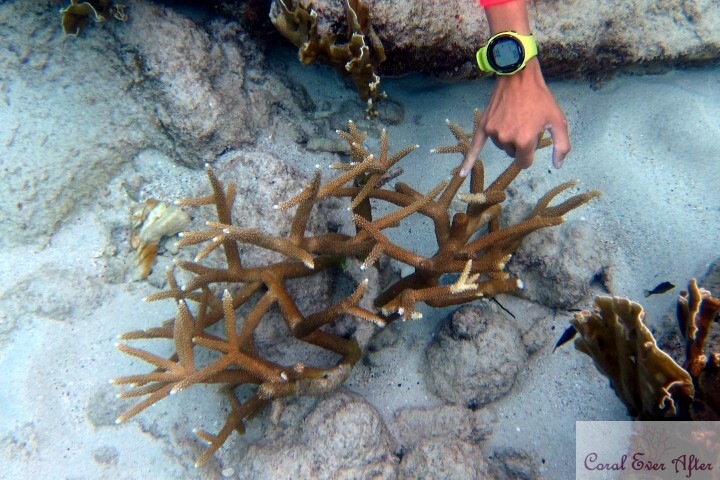
For our anniversary, my husband and I decided to revisit our honeymoon location: Curacao. It was also where we got our PADI Open Water scuba certification with Ocean Encounters and tried to catch the coral spawnings (with no luck). So of course, this time around, we couldn’t sit still and just enjoy the island. We had to get involved!! Coral restoration in Curacao seemed like the best way to volunteer while on vacation.

My husband totally embraces my obsession with rehabilitating corals, so when he came across the PADI Coral Restoration certification offered by Coral Restoration Curacao, he signed both of us up! Previously, my favorite dive of all time was working with Project Aware to clean up a small fishing island off the coast of Honduras, so this seemed to fit right in.
Coral Restoration Classroom Training:

The certification class required classwork, three dives, and an exam (which wasn’t difficult… I thought I was just joking around that the first question would be “what is a coral…” Whoops.)
The class started off with our instructor, Vivianna, going over coral anatomy, coral pests, and the mission of Coral Restoration Foundation (CRF). I felt so bad for the instructors because we asked a million questions and derailed all of the training!

The training materials included 3D-printed coral models to show their internal structure.
And, if you’re a total nerd like me, you can print off your own 3D coral model, which is downloadable for free on the National Oceanic and Atmospheric Administration’s (NOAA’s) website!
Coral Restoration Nursery and Outplant Familiarization:

Then, we went on our first dive. We toured the Nursery and Outplant areas to get a feel of the area. During our tour, our instructor pointed out the growth of various “frags” over time, pests, diseases, and other things we learned during class. Here are some Elkhorn coral outplants.

Our instructor showed us areas of fireworm damage, along with how to use a drinking bottle as a trap.

Next, we went to the Nursery. We were assigned a tree to clean. Our task was to use steel wool pads and scotch-brite pads to remove all the algae and fire coral from the tree. That’s it.
Cleaning the Coral Nursery:

Ok, I really had no idea how hard that was going to be, especially with the ban on gloves. Two people scrubbing a suspended tree, in some fairly strong surge, around critically endangered coral… and oh by the way… scrubbing fire coral just means the nematocysts get suspended in the water all around you. That pretty much took up our entire dive… one tree cleaning… and there were LOTS of trees.

Here, I am cleaning the coral tree, with steel wool and no gloves. Needless to say, FIRE CORAL HURTS!!!!

Eventually, our dive was over, and our tree was sufficiently clean for the coral to thrive. Time for a surface interval and more training!






Pingback:Coral Restoration in Curacao, Part II - Coral Ever After
Pingback:Coral Restoration in Curacao, Part III - Coral Ever After
Pingback:Coral Disease Assessment: Key Lesion Insights for Hobbyists - Coral Ever After